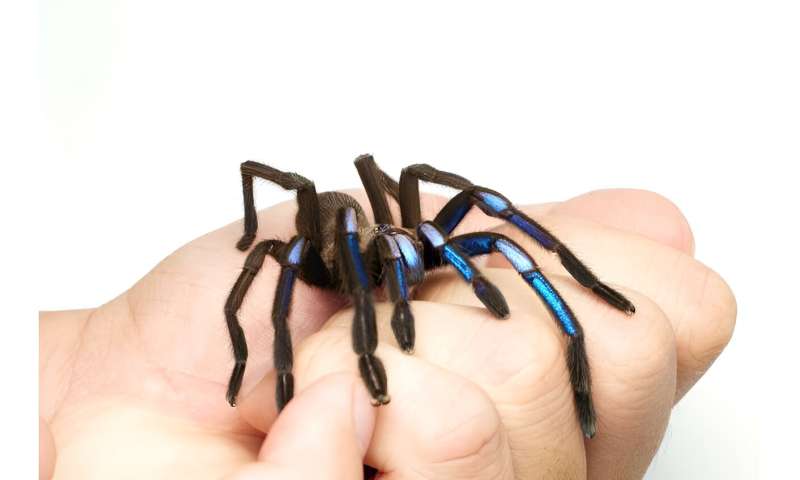Best of Last Week—electric blue tarantula, AI urban planning, link between chemicals and cancer in women

It was a busy week for biology research as a team of biochemists and molecular biologists affiliated with several institutions in the U.S. and Spain reported that mature human sperm lack intact mitochondrial DNA. They found that while mature sperm do carry some mitochondria, they lack intact mtDNA. Also, a team of life scientists, botanists and geneticists affiliated with multiple institutions in China, working with one colleague from Japan and another from Canada, found that a parasitic plant of the Balanophoraceae family persuades hosts to grow into its own flesh—an example of genome shrinkage. And a team of biologists at Khon Kaen University, in Thailand, working with an amateur YouTube biology enthusiast, discovered a new electric blue tarantula species in Thailand—the first known example of a tarantula that lives inside bamboo stalks.
In technology news, a team of engineers at the University of Science and Technology of China, Chinese Academy of Sciences, designed an ultra-stable, high-energy-density Zn–Mn battery. And another team at the Chinese Academy of Sciences developed a new way to recycle materials inside lithium-ion batteries—a method that is both greener and more efficient than other methods. Also, a team of urban planners and information scientists at Tsinghua University in China developed an AI-based urban planning system that outperforms human experts in creating urban planning designs. And a combined team of engineers from Université Clermont Auvergne, CNRS and the University of Toronto Institute of Aerospace Studies, developed a framework for building risk-aware robot navigation systems operating in unknown environments.
In other news, a team of neuroscientists from Harvard Medical School, UCLA and the Wyss Center for Bio and Neuroengineering, tested a technique that involved regeneration of nerve cells across complete spinal cord injuries, reversing paralysis in mice. Also, a combined team of hydrologists from Bangor University in the U.K. and the Swedish University of Agricultural Sciences, disproved Leonardo da Vinci's, "rule of trees" technique for drawing trees. And finally, a combined team of medical researchers from UC San Francisco, the University of Southern California and the University of Michigan found significant chemical exposures in women with several types of cancers.
© 2023 Science X Network